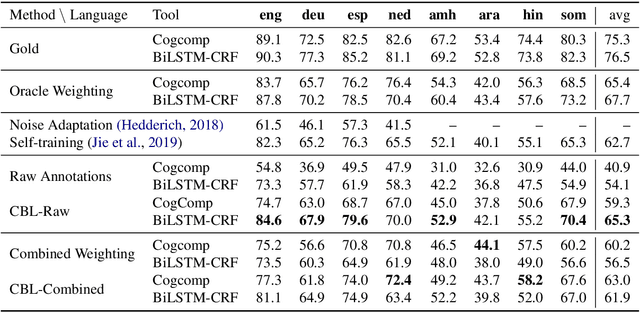Named Entity Recognition with Partially Annotated Training Data
Paper and Code
Sep 20, 2019



Supervised machine learning assumes the availability of fully-labeled data, but in many cases, such as low-resource languages, the only data available is partially annotated. We study the problem of Named Entity Recognition (NER) with partially annotated training data in which a fraction of the named entities are labeled, and all other tokens, entities or otherwise, are labeled as non-entity by default. In order to train on this noisy dataset, we need to distinguish between the true and false negatives. To this end, we introduce a constraint-driven iterative algorithm that learns to detect false negatives in the noisy set and downweigh them, resulting in a weighted training set. With this set, we train a weighted NER model. We evaluate our algorithm with weighted variants of neural and non-neural NER models on data in 8 languages from several language and script families, showing strong ability to learn from partial data. Finally, to show real-world efficacy, we evaluate on a Bengali NER corpus annotated by non-speakers, outperforming the prior state-of-the-art by over 5 points F1.
 Add to Chrome
Add to Chrome Add to Firefox
Add to Firefox Add to Edge
Add to Edge